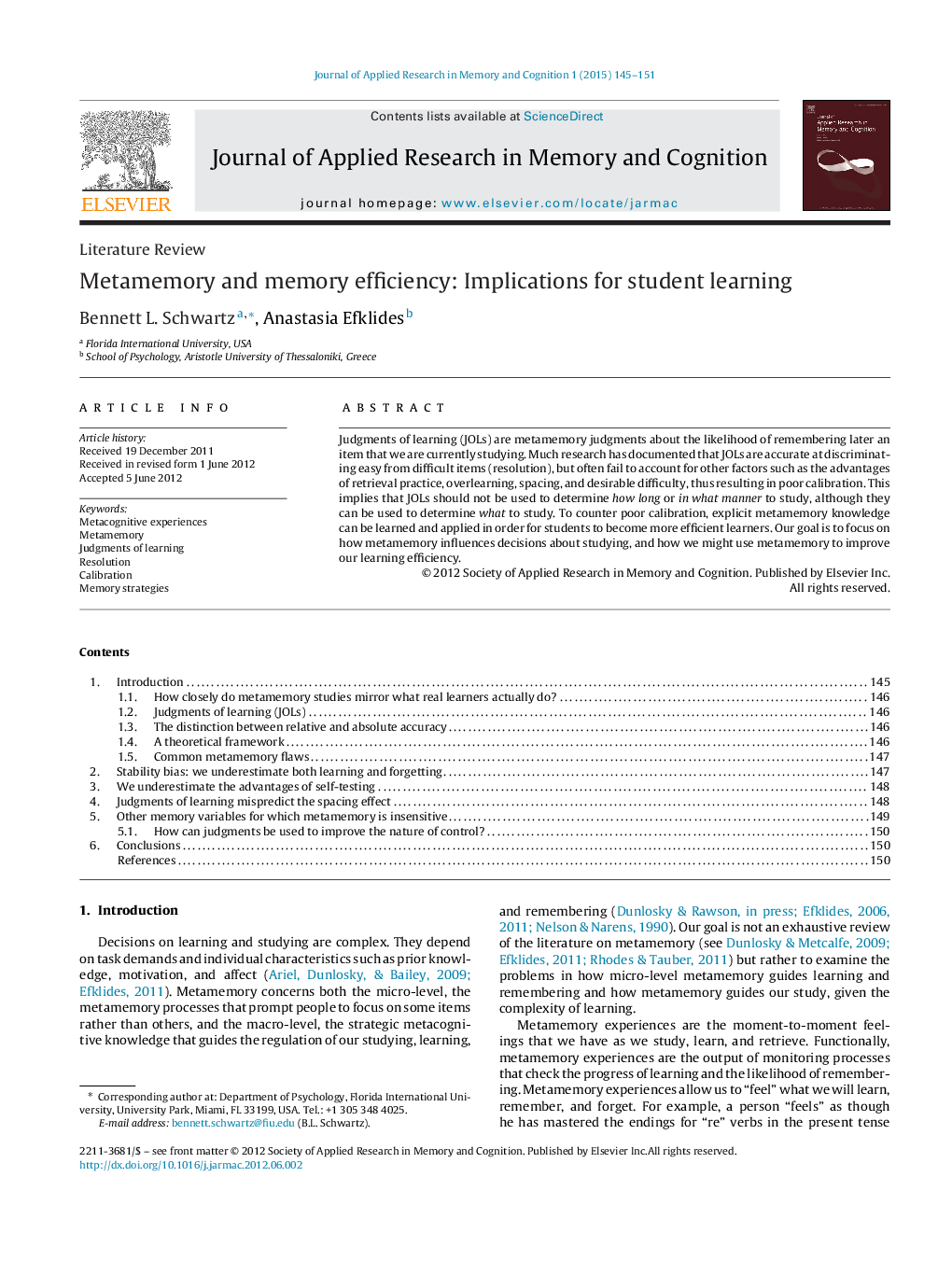| Article ID | Journal | Published Year | Pages | File Type |
|---|---|---|---|---|
| 881684 | Journal of Applied Research in Memory and Cognition | 2012 | 7 Pages |
Judgments of learning (JOLs) are metamemory judgments about the likelihood of remembering later an item that we are currently studying. Much research has documented that JOLs are accurate at discriminating easy from difficult items (resolution), but often fail to account for other factors such as the advantages of retrieval practice, overlearning, spacing, and desirable difficulty, thus resulting in poor calibration. This implies that JOLs should not be used to determine how long or in what manner to study, although they can be used to determine what to study. To counter poor calibration, explicit metamemory knowledge can be learned and applied in order for students to become more efficient learners. Our goal is to focus on how metamemory influences decisions about studying, and how we might use metamemory to improve our learning efficiency.
► Judgments of learning (JOLs) are accurate at discriminating items (resolution). ► JOLs can be used to determine what to study. ► JOLs show poor calibration because they are insensitive to some memory variables. ► JOLs should not be used to determine how long or in what manner to study ► Explicit metamemory knowledge can be learned.
